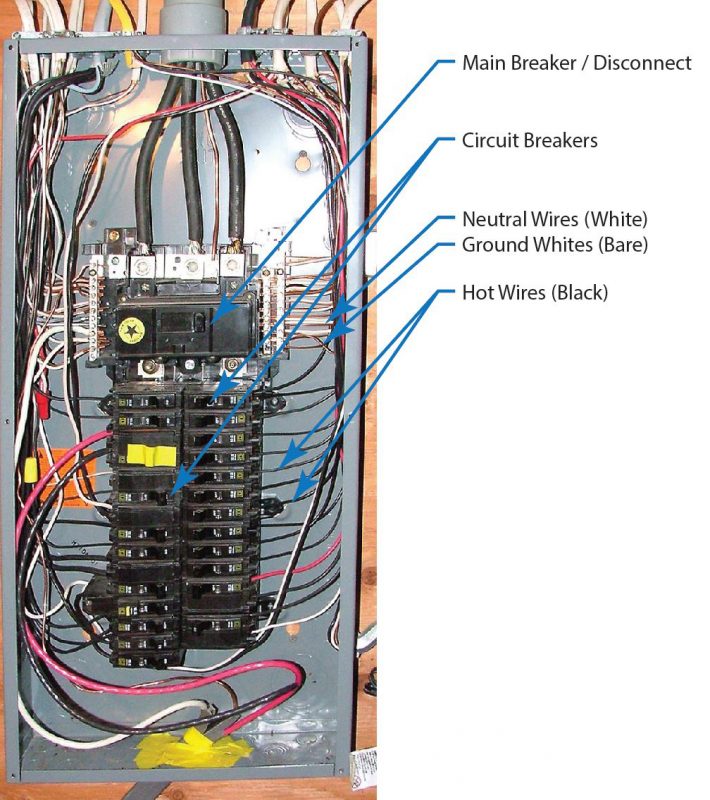Imagine this: You’re enjoying a relaxing evening at home when suddenly, your lights start flickering, appliances shut off, and a burning smell fills the air. Don’t panic! You may be experiencing an electrical panel failure, and it’s crucial to address it promptly to prevent further damage or even a house fire.

Image: schematiclibsven99.z13.web.core.windows.net
At the heart of your home’s electrical system, the electrical panel distributes power throughout your property. If it malfunctions, it can compromise the safety and functionality of your entire electrical system. Replacing an electrical panel might sound daunting, but with proper understanding and planning, it’s a necessary investment in your home’s safety and efficiency.
**Understanding Electrical Panel Replacement Costs**
The cost of replacing an electrical panel varies significantly depending on several factors:
- Panel Size and Capacity: Larger panels with higher amperage capacity cost more.
- Panel Type: Standard breaker panels are more affordable than fuse panels or modern smart panels.
- Labor Costs: The electrician’s hourly rate and the complexity of the job affect labor costs.
- Location: Remote or inaccessible locations may incur additional charges for travel and logistics.
- Permits and Inspections: Local building codes require permits and inspections, which vary in cost from area to area.
**Comprehensive Breakdown of Costs**
Panel and Materials:**

Image: happydiyhome.com
Labor:**
Permits and Inspections:**
Replacing an electrical panel can be costly, but there are ways to save without sacrificing safety: “When it comes to electrical panel replacement, safety should always be the top priority. Hire a licensed and experienced electrician who can ensure your panel is installed properly,” advises licensed electrician John Smith. “Choosing the right panel for your home is crucial,” says electrician Maria Rodriguez. “Consider your current and future electrical needs, and don’t hesitate to consult with a professional for recommendations.” Q: How often should I replace my electrical panel? Q: Are there any signs that indicate I need a new panel? Q: Can I install an electrical panel myself? Replacing an electrical panel is an investment in the safety and efficiency of your home. By understanding the factors that affect costs, seeking expert advice, and implementing cost-saving tips, you can make an informed decision that protects your home and your family. Is replacing your electrical panel something you’re considering? If so, we encourage you to explore further and consult with a professional electrician for a comprehensive evaluation and customized quote.
**Tips for Saving Money**
**Expert Advice**
**Frequently Asked Questions**
A: Every 25-40 years, depending on usage and condition.
A: Flickering lights, blown fuses, tripped breakers, burning smells, or discolored wires are potential signs.
A: No, it’s highly recommended to hire a qualified electrician for safety and compliance reasons.How Much Does It Cost To Replace A Electrical Panel
**Conclusion**